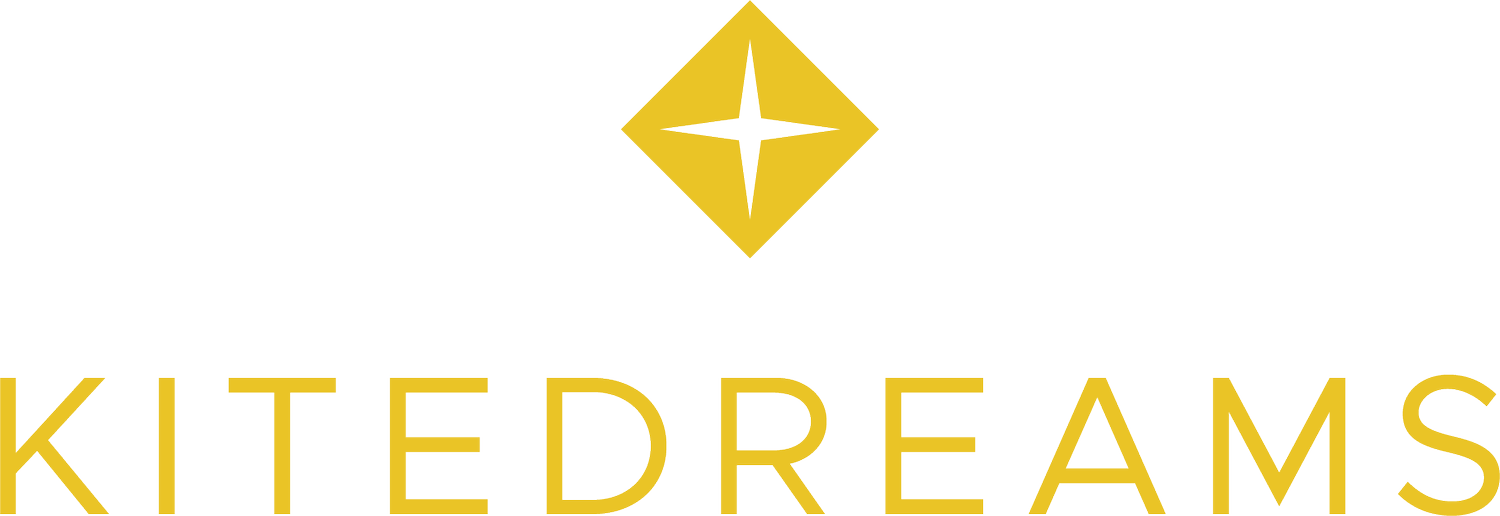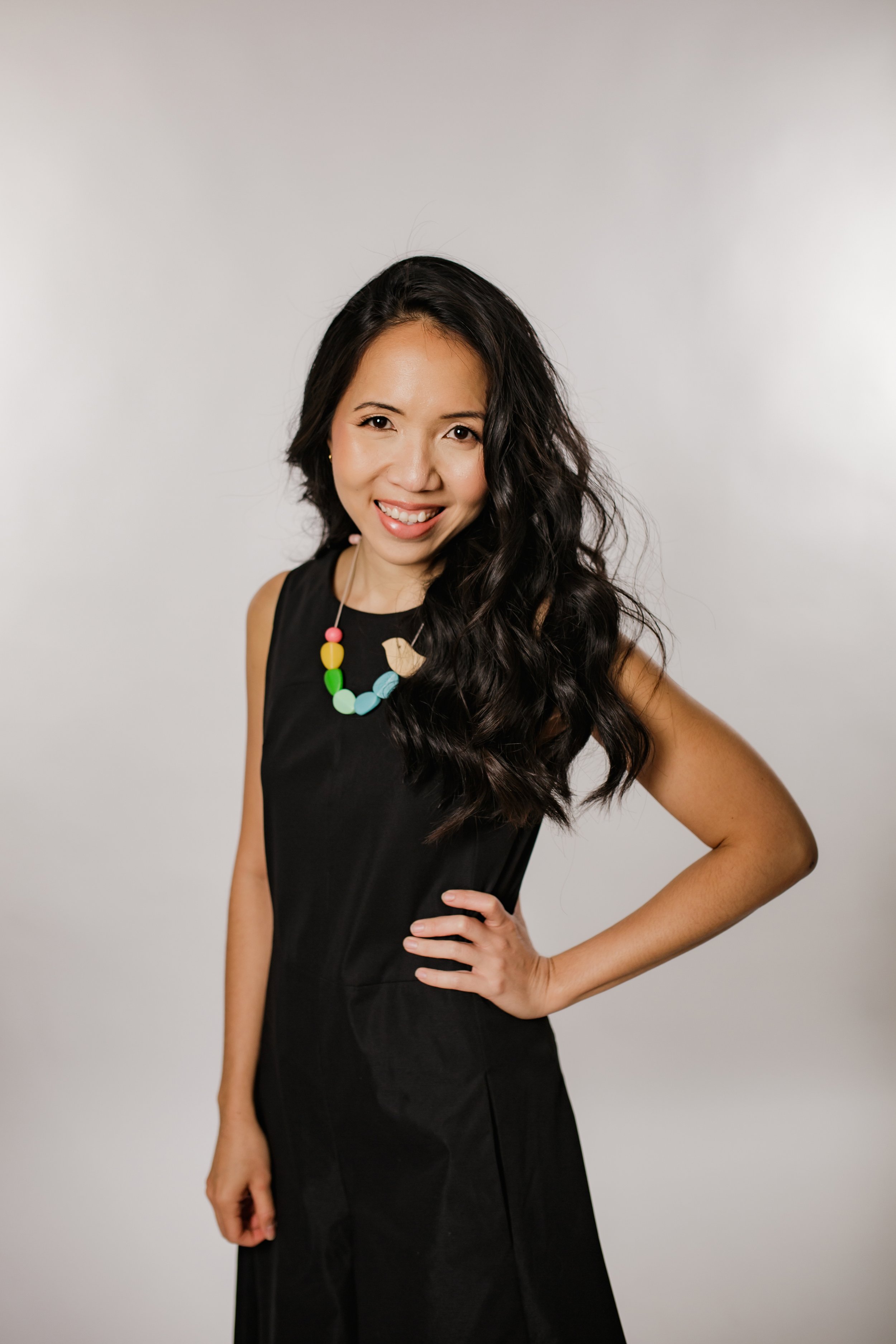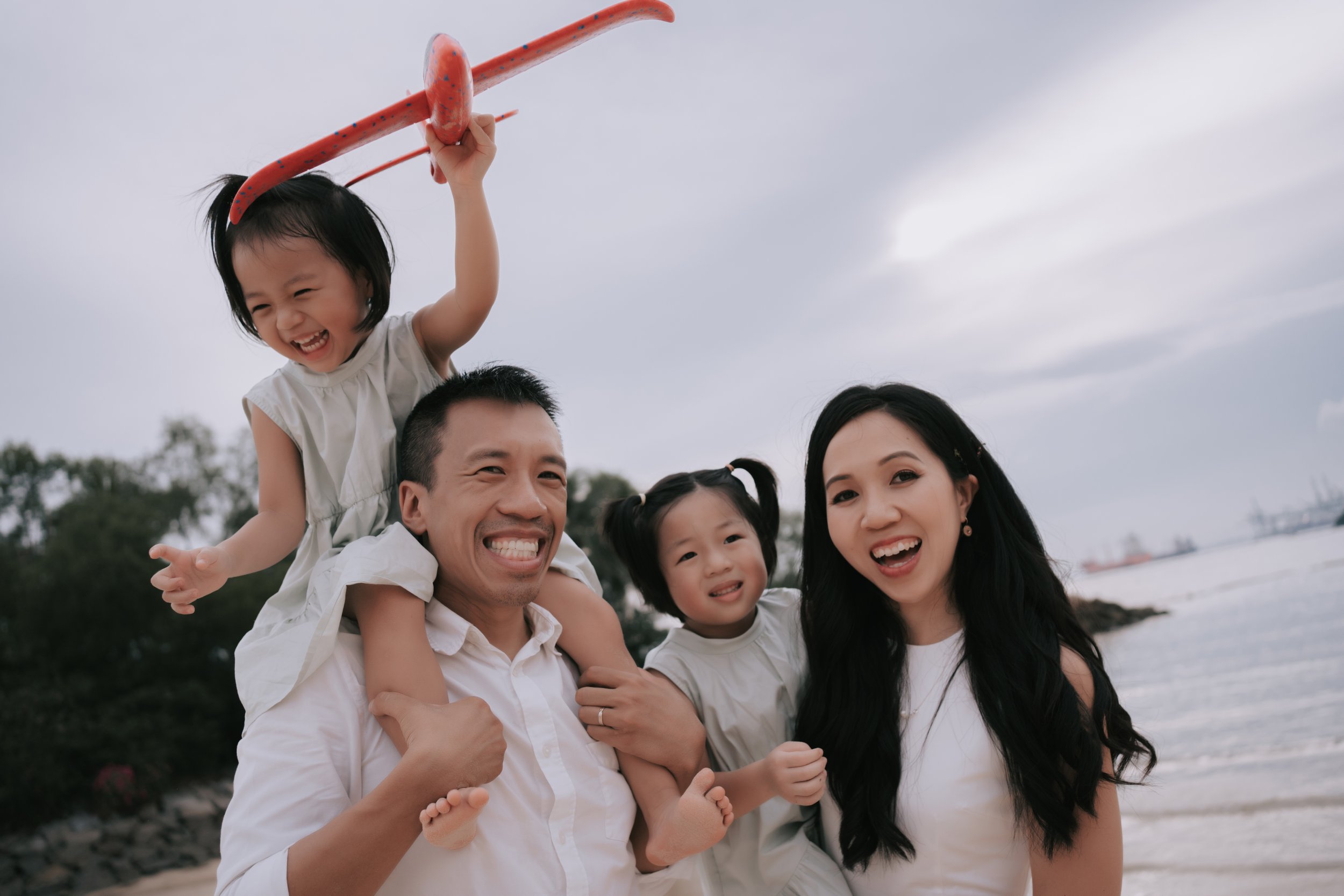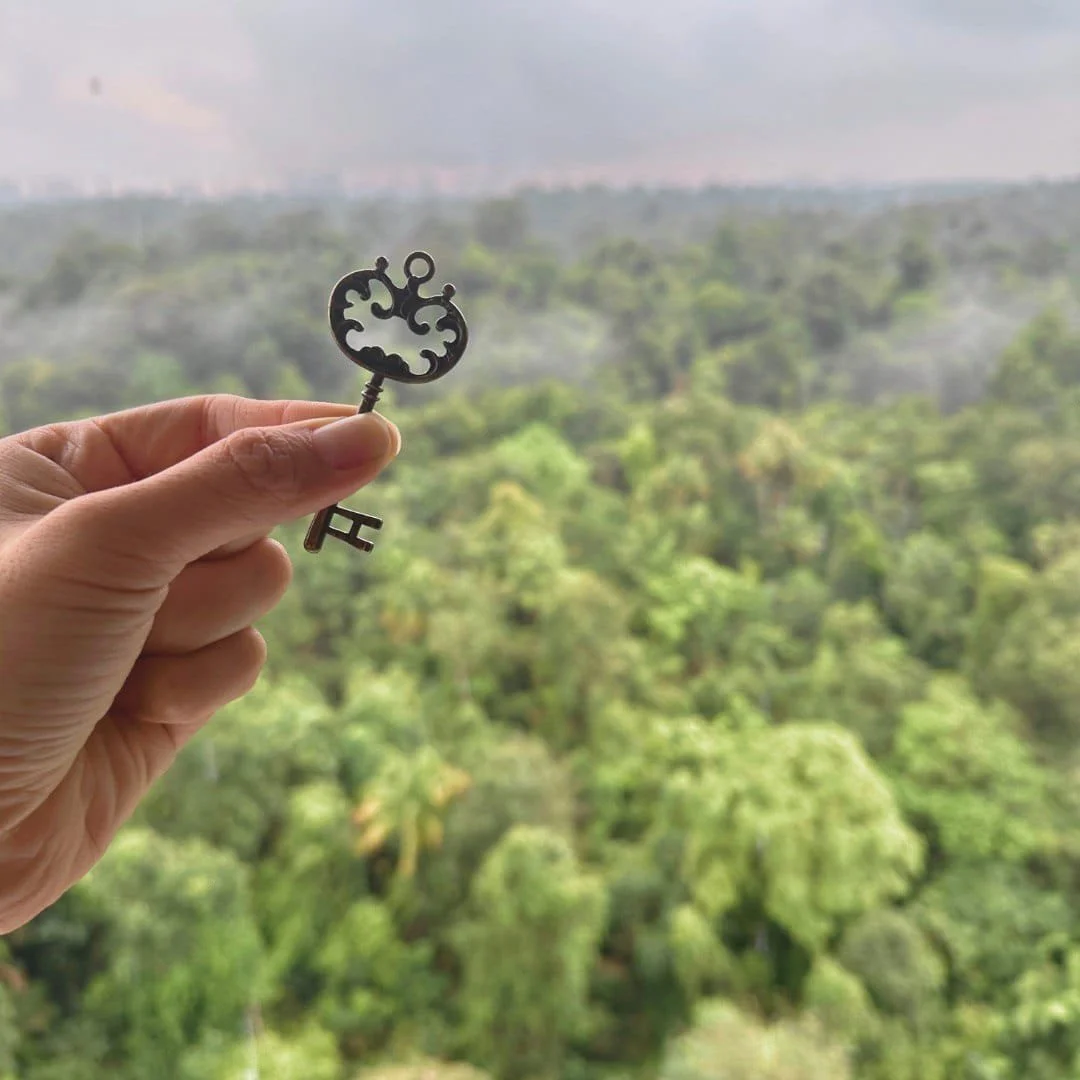Wai Jia Tam of Kitesong Global: They Told Me It Was Impossible And I Did It Anyway
This interview was first published in Authority Magazine.
As a part of our series about “dreamers who ignored the naysayers and did what others said was impossible”, I had the pleasure of interviewing Wai Jia Tam.
“Ask yourself — what will you regret? Many people have told me that moving our young family to Tanzania long-term is a terrible idea. When my husband — who is immunocompromised from a liver transplant due to cancer — and I moved to Uganda to serve for a year in 2014, people told us that we were crazy too. But when I ask myself whether or not I’ll regret not pursuing it, that helps me gain clarity on what I truly believe in.”
Thank you so much for joining us! Our readers would love to ‘get to know you’ a bit better. Can you tell us your ‘backstory’?
Sure! I’m Wai Jia, a Singaporean humanitarian physician and founder of Kitedreams and Kitesong Global. My day job is in Infectious Disease outbreak response, and I consult for the United Nations and World Health Organization on an as needed basis, accepting deployment to Africa when crises hit. My husband, two preschool girls, and I plan to move to Tanzania in a few months’ time to serve underprivileged communities long-term.
Are you working on any new or exciting projects now? How do you think that will help people?
Yes! My debut book, “Dream Brave: A Dare to Live by Faith When You Feel Too Small,” will be launched on Jan. 30, 2024, in the States by Chosen Books of Baker Publishing Group. My hope is that every person who reads it will be inspired to dig deep into themselves to discover their buried dreams, and catalyze them into action to impact the world. I truly believe that everyone has a dream that the world is waiting for them to fulfil, for greater good.
In your opinion, what do you think makes your company or organization stand out from the crowd?
Kitesong Global is an international 501c3 non-profit whose vision is to see people’s dreams set free. We believe that everyone is one inspiration away from uncovering a dream that will set themselves, and others, free for a better world. What makes us stand out is our audacious hope and fierce faith in the power of small dreams.
Ok, thank you for that. I’d like to jump to the main focus of this interview. Has there ever been a time that someone told you something was impossible, but you did it anyway? Can you share the story with us? What was your idea? What was the reaction of the naysayers? And how did you overcome that?
At the age of 18, I traveled to Nepal by myself to live in a children’s home for 6 weeks during the Maoist uprising. There were bomb blasts, power cuts, and people burning flags…. It was a tumultuous time. We were traumatically evicted, and I soon learnt that this happened on a yearly basis. What the girls and missionary house parents really needed was a permanent home.
But what could I do? I was only a depressed and awkward 18-year-old with no credentials. I had this crazy idea to publish a picture book called “Kitesong,” a story about a girl losing and finding her kite, and raising funds to buy them a permanent home.
But who would believe in the idea? Many people laughed at it. But one person believed in my dream, and then another. In three months, my first picture book, “Kitesong” was birthed, and over a $100,000 was raised to purchase a permanent home for the girls.
In the end, how were all the naysayers proven wrong? :-)
Today, the girls have grown up, and two pictures of the group of the same girls, seated in nearly the same positions, 10 years apart, hangs on our wall at home. Since then, the power of faith in our little dreams has been the core message of my life.
None of us are able to achieve success without some help along the way. Is there a particular person who you are grateful towards who helped get you to where you are? Can you share a story about that?
When the COVID-19 outbreak broke out, I’d just graduated with a Master of Public Health from Johns Hopkins University. I’d returned home to Singapore raring to make a difference, but when the outbreak started, I had been unplugged from the healthcare landscape from being overseas for 3 years and couldn’t find a meaningful way to contribute like I’d hoped to.
One day, amidst an outbreak of tens of thousands of quarantined low-wage migrant workers living in dormitories, a mentor asked me to illustrate a health booklet. The booklet would then be translated into eight different languages of minority groups to explain to migrant workers what was happening, to allay their anxieties, and to prevent rioting among patients.
I remember feeling spurned, as if I had been asked to do something beneath me. Wasn’t there something more important I could do as a master’s degree holder who graduated with five awards, honors, and as a Fulbright scholar than draw cartoons?
But it was my husband who reminded me of a Bible verse, “Whatever your hands find to do, do it with all your might.” He reminded me nothing should be too small for us to do. What matters is that we put in all our hearts into it if we believe it will help others.
So I went all in, created these cartoon booklets in eight different languages through my non-profit, and started churning them out faster than the health institutions. Who would have known that that would catch the attention of the chairperson of the World Health Organization who was steering the committee in Singapore? Over four years, it would garner funding of up to $800,000 over to improve the health of migrant workers through health communications, and I ended up fulfilling the dream of my 17-year-old medical school applicant self to be deployed as a consultant to Africa by the United Nations and WHO.
So my husband, who is a cancer-survivor and an IronMan, has always been a motivating force and inspiration to me, with a heart of wisdom and compassion.
It must not have been easy to ignore all the naysayers. Did you have any experiences growing up that have contributed to building your resiliency? Can you share the story with us?
Growing up, my dad often told me about his life to remind me of the power of persevering. He came from a small village in Malaysia and was second youngest of nearly a dozen children. They grew up “sleeping like potatoes” next to one another in a room. Once, he was even hospitalized for malnourishment.
He told me how he was often looked down upon. But his motto is “打不死,” which literally means “can’t be beaten to death.”
He worked hard to scrub plates and make pizza at restaurants to pay for his university education when he had the chance to do so in the States. He told me how, because of how scrappy he looked and how cold he was, he’d stand in hotel lobbies and get chased away by security guards in the winter. That really marked me for life — to know he’d given me a heritage of tenaciousness and resilience, that it doesn’t matter what others say about your future if you put in the hard work others are unwilling to.
Based on your experience, can you share 5 strategies that people can use to harness the sense of tenacity and do what naysayers think is impossible?
Ask yourself — what is at stake? When people I loved and admired advised me not to embark on Kitesong, I reminded myself that the lives of 30 little girls were at stake. That pushed me to overcome all odds.
Close your eyes and imagine the vision you had. A year ago, I had a vision of writing Chinese Calligraphy and displaying my artwork in a mall’s exhibition. The characters, each as large as a dining table, were conceptualized to be entitled The Dreams Collection as a means of raising funds for my non-profit and encouraging people to dream again. I only had a budget of $6,000. Some people felt it was a foolish endeavor as I would bleed financially just to organize the event. They said there was no way it was possible! But I kept going back to my vision, and in the end, it came to pass in, not one, but three malls, and I received sponsorships of over $100,000 to make it possible. We raised about $80,000 for the non-profit.
Do a little every day. The book “The Slight Edge” by Larry Olsen changed my life. Doing a little every day towards your goals has a compounding effect over time and can make the biggest difference.
Journal. Going against naysayers, especially when they are people you love or admire, can be incredibly difficult. As a woman, I’ve been told I shouldn’t speak in faith-based circles or go to dangerous places on mission. But I spend time journaling, reflecting and making sure I get clear on my values and motivation so I can walk my ‘why’ authentically.
Ask yourself — what will you regret? Many people have told me that moving our young family to Tanzania long-term is a terrible idea. When my husband — who is immunocompromised from a liver transplant due to cancer — and I moved to Uganda to serve for a year in 2014, people told us that we were crazy too. But when I ask myself whether or not I’ll regret not pursuing it, that helps me gain clarity on what I truly believe in.
What is your favorite quote or personal philosophy that relates to the concept of resilience?
There is a verse in the Christian Bible, Isaiah 45:3, which talks about “treasures of darkness.” I believe that it is during our hardest times in life that we glean the deepest gems, ones that we’d otherwise never pick up. That, to me, is resilience — the ability to quiet our hearts, allow our eyes to acclimatize to the lack of light, and see good, even in the darkness.
You are a person of great influence. If you could inspire a movement that would bring the most amount of good for the greatest number of people, what would that be? You never know what your idea can trigger.
It would be entitled after my debut book — a movement to get people to DREAM BRAVE. I’d challenge every person to uncover a dream they were too afraid to pursue, count the cost, and embrace the risk of pursuing it.
Can our readers follow you on social media?
Yes! My most active account is on Instagram at @tamwaijia. I’m also on Facebook at @waijia.
Thank you for these great stories. We wish you only continued success!








